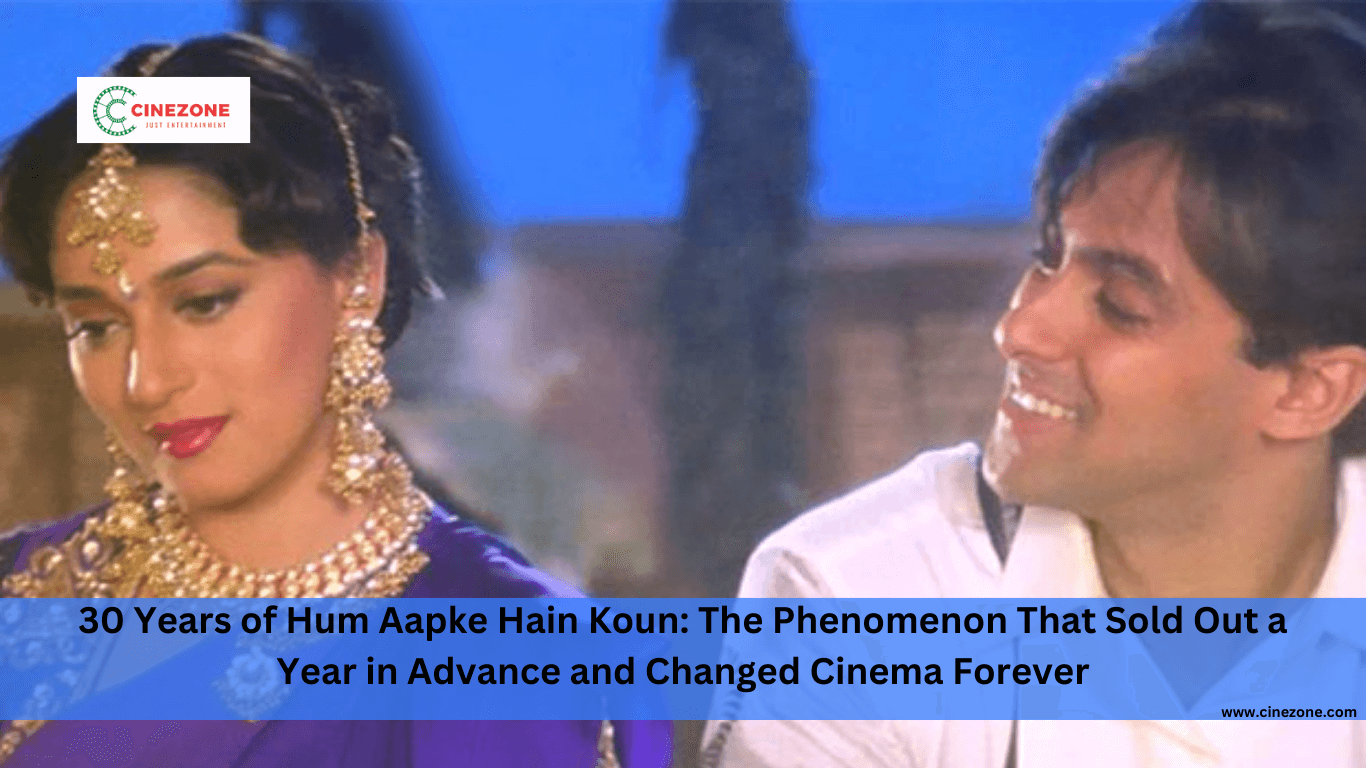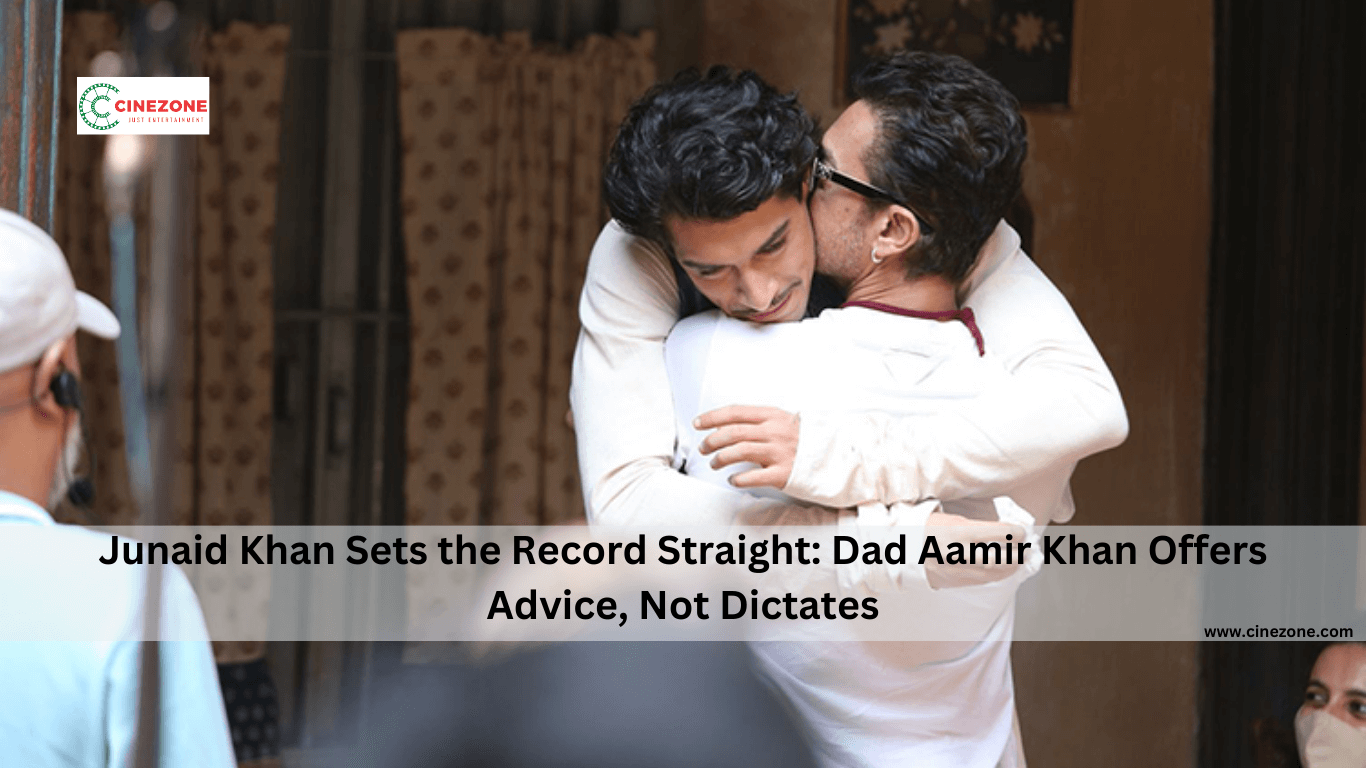30 Years of Hum Aapke Hain Koun: The Phenomenon That Sold Out a Year in Advance and Changed Cinema Forever
How a Black Ticket Seller Bought Two Flats and Liberty Cinema’s Booking Window Stayed Shut for a Year
In the annals of Indian cinema, few films have left as indelible a mark as Hum Aapke Hain Koun. Released on August 5, 1994, this romantic family drama, directed by Sooraj Barjatya, was a blockbuster that broke numerous records and set new benchmarks for the industry. Starring Salman Khan and Madhuri Dixit in lead roles, the film’s appeal was universal, drawing audiences from all walks of life and across generations.
As Hum Aapke Hain Koun celebrates its 30th anniversary, it’s worth revisiting the phenomenon it became—one that not only captivated the hearts of millions but also created astonishing tales of its own. One such story is that of a black ticket seller who reportedly bought two flats solely from the profits of selling tickets to this movie. Equally astonishing is the fact that the booking window at Liberty Cinema in Mumbai didn’t open for an entire year, as all shows were sold out in advance.
The Magic of Hum Aapke Hain Koun
Hum Aapke Hain Koun was more than just a film; it was a cultural event. The movie’s storyline, which centred around the joyous and sometimes tumultuous events leading up to a wedding, struck a chord with audiences who saw their own lives reflected on the screen. The music, composed by Raamlaxman, was a major highlight, with songs like “Didi Tera Devar Deewana” becoming anthems of the time.
The film’s success was unprecedented. It became the highest-grossing Bollywood film of its time and held that record for many years. Its box office collections were staggering, and it was one of the first films to cross the 100-crore mark in India.
The Legend of the Black Ticket Seller
In the bustling streets of Mumbai, cinema has always been more than just entertainment; it’s an integral part of the city’s social fabric. With Hum Aapke Hain Koun, the demand for tickets was so high that it created an unexpected economic opportunity for black market ticket sellers.
One such seller, who remains unnamed, reportedly managed to buy two flats in Mumbai from the profits he made selling tickets to Hum Aapke Hain Koun. This tale, while extraordinary, underscores the film’s monumental demand and the lengths to which fans were willing to go to watch it. Selling tickets in black has always been a risky venture, but the astronomical popularity of this film made it a lucrative business.
Liberty Cinema: A Year of Sold-Out Shows
Liberty Cinema, one of Mumbai’s iconic theatres, witnessed an unprecedented phenomenon during the release of Hum Aapke Hain Koun. For an entire year, the booking window remained shut because every single show was sold out well in advance. This was a testament to the film’s extraordinary pull.
In an era before online bookings and multiplexes, getting a ticket for a hit film involved standing in long queues and often, facing the disappointment of a “House Full” board. For Liberty Cinema to have its shows sold out for a year was unheard of and speaks volumes about the film’s appeal.
The theatre owners, in interviews, have reminisced about this period as a golden era. The demand was so high that they had to employ extra security to manage the crowds. People from across the city and even from neighbouring towns would throng to Liberty Cinema, hoping to catch a glimpse of the movie that everyone was talking about.
The Impact on Indian Cinema
Hum Aapke Hain Koun wasn’t just a commercial success; it was a game-changer for Bollywood. It redefined the family drama genre and set new standards for music, choreography, and production design. The film’s success also marked a shift in the industry, demonstrating the power of family-friendly content.
The movie’s influence can be seen in numerous films that followed, which tried to capture the same magic. The success of Hum Aapke Hain Koun encouraged filmmakers to focus on themes of family values, traditions, and relationships, which became a staple in Bollywood cinema for years to come.
Moreover, the film’s business model, which included extensive marketing and merchandising, set a new precedent. It was one of the first Bollywood films to be marketed on such a large scale, with tie-ins ranging from music albums to clothing lines.
A Legacy That Endures
Thirty years on, Hum Aapke Hain Koun continues to hold a special place in the hearts of audiences. Its songs are still played at weddings, and its dialogues are still quoted by fans. The film’s legacy is not just in its box office numbers but in the cultural impact it has had.
For the actors, particularly Salman Khan and Madhuri Dixit, the film remains one of the highlights of their careers. Both stars have often spoken about how the movie changed their lives and brought them closer to their fans.
For director Sooraj Barjatya, Hum Aapke Hain Koun was a reaffirmation of his belief in traditional values and storytelling. It paved the way for more such films from Rajshri Productions, a banner known for its family-centric movies.
Conclusion
As we celebrate 30 years of Hum Aapke Hain Koun, it’s not just the film’s success that we remember but the incredible stories it generated. From a black ticket seller who bought two flats to a cinema that saw its booking window shut for a year, the film’s impact was far-reaching and profound.
Hum Aapke Hain Koun remains a shining example of the magic of cinema—a film that brought people together, transcended barriers, and created memories that have lasted a lifetime. Its legacy is a testament to the power of storytelling and the enduring appeal of films that touch the heart.
Also, check out – The Day Hugh Jackman Tried to Charm Aishwarya Rai: A Tale of Playful Flirting and Global Stardom





